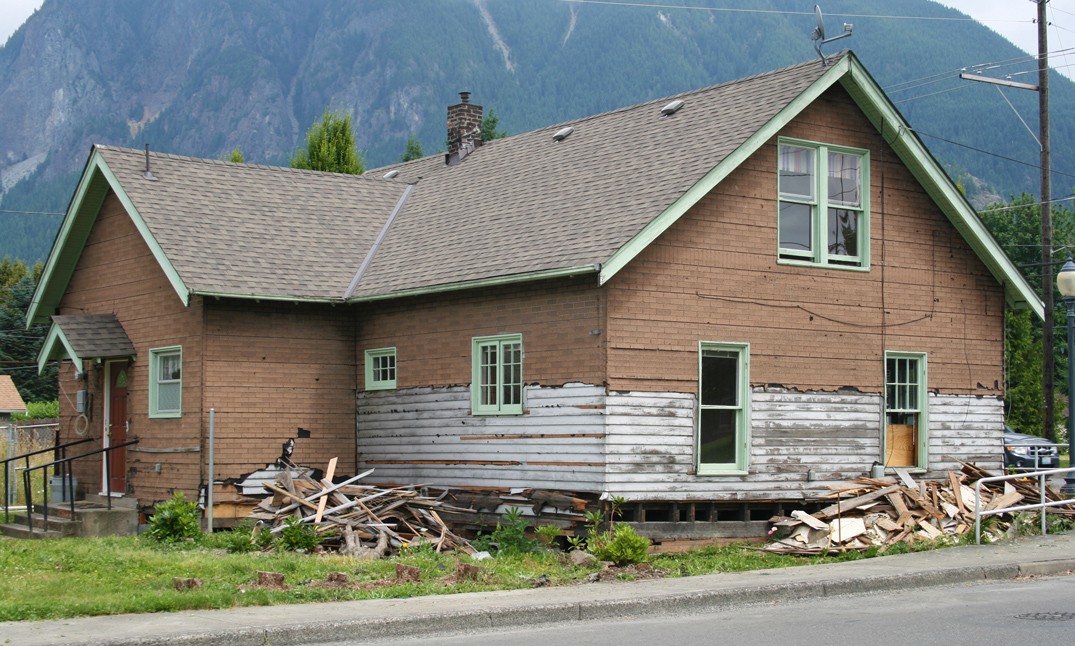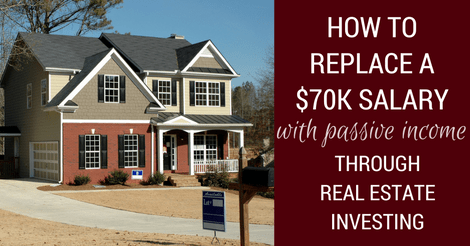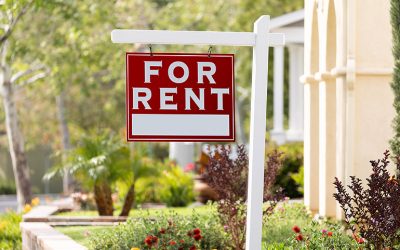
The house flipping industry is pretty big, and many investors have made it their main source of income. It’s not for everyone, though, especially those whose time is important to them, and who can’t afford the “win some, lose some” financial approach. For these people, flipping houses is a bad idea, and a more stable, less time-consuming approach might better suit them. With that said, let’s kick this article off with a brief summary of the question we will be focusing on today:
Why is flipping houses a bad idea? You can potentially lose a lot of money with each property that is flipped, which makes it a risky investment strategy. Additionally, it’s not known for being a steady and reliable source of income, and it’s incredibly time-consuming to complete all the steps necessary to flip a house.
What Makes Flipping Houses a Bad Idea?
Flipping properties can be a bad idea for those who would like to invest in real estate to create reliable income, all without feeling like they are working a full-time job. Well, there are many aspects of house flipping that can make this difficult to achieve, and that’s what we will be discussing below.
1. Flipping Houses is Extremely Time-Consuming
Those who have flipped houses know that it can be a full-time job where you are ultimately trading time for dollars. If you’re trying to move away from that path because you’re more interested in passive income, then flipping houses may not be right for you. Let’s go over what a house flipper is typically responsible for – the tasks that can consume an investor’s days, weeks, and months.
Searching for the Right House to Flip
Firstly, you have to find a property that will be profitable flip. This in itself can take up a considerable amount of time. It involves such things as researching markets, scouting out houses that will sell for less for various reasons, marketing to potential sellers who may want someone to take a property off their hands, and more.
The Purchasing Process & the Renovation Plan
Once a property is located, there is the whole purchasing process to deal with, complete with tons of paperwork, and all the typical procedures a buyer must go through. Then a plan must be devised for repairs and renovations based on a budget and projected profit. This can’t be rushed; it’s imperative to come up with the right plan of attack, which might include architectural drawings, getting estimates from contractors, and possibly applying for building permits from the city.
Months of Construction, Inspections & the Selling Process
After everything is worked out, renovations and repairs begin, and depending upon what needs to be done, it can take up a lot of the investor’s time. If the flipper opts to have contractors do the work, they may still need to oversee the whole project with many hours onsite. Many flippers do the work themselves to ensure they generate a profit that makes flipping the property worth it, and you can imagine how much time that would take.
More steps include dealing with inspectors, looking for a buyer, and going through the process of selling the house, and then the whole process starts over and is repeated with the next flip. You get the big picture now, right? This truly is a full-time job!
2. Property Flipping Presents the Potential to Lose a Lot of Money
On the surface, it may appear that flipping houses is consistently lucrative, but if you dig a little deeper, you will see that there is a great potential to lose a lot of money with each flip, especially for those who are new to the game. If you’re not an experienced flipper, and you don’t like to take chances with your money, flipping houses may be a bad idea. Why is this the case? Well, there are a few things to take into account when it comes to a flip gone bad – let’s discuss some of them.
Simply underestimating the renovation and repair costs can put an investor in the red as far as profit is concerned. If that happens, there really is no turning back, the job has to be finished to try and at least break even with the money that was invested into the property. In addition to this, if the flipper estimates the total value of the renovated property to be higher than its market value, it can turn into a huge loss when the property is sold. Imagine spending all that time and not even making a profit, or worse yet, losing money in the process.
Lastly, if the flipper has a mortgage out on the property, and it takes too long to find a buyer, it can result in the investor getting deeper into a financial hole as each month passes by.
3. Producing a Steady Income May be a Challenge
For those who are looking for steady, reliable income, flipping houses could be the wrong investment vehicle for you. Because of the details mentioned above on how you can lose money due to certain situations while flipping a house, it can set a flipper up for inconsistent yearly income.
Additionally, house flipping is highly competitive, which can make it more difficult to find profitable flips. This adds to the inconsistency of generating the funds you may be relying on. So, if you prefer steady cash flow that comes in like clockwork, then it may be a bad idea to start flipping properties.
Rental Real Estate is a Good Alternative to Flipping Houses?
I’ve been involved in the real estate investment industry for about 15 years now, and flipping houses has been a part of my strategy in the past. So, I can say from experience that flipping properties is not my preference. With all the time it takes to complete a flip, it can become your day job, and weekend job on top of that. I particularly didn’t like the financial uncertainty aspect of it either.
As my interests evolved over the years, I started investing in rental real estate and found that it was an excellent alternative to flipping houses. Investing in rental properties resolves a few of the main issues I had with flipping houses:
Rental Properties Create True Passive Income
Rental real estate can certainly create passive income for the investor. Once you’re in the final stage, where a property manager and tenant are placed, that’s it; you sit back and enjoy monthly rent checks, like clockwork, as the property manager takes care of the rental for you. In comparison to flipping houses where you have to do a considerable amount of work over and over again, rental real estate is a great alternative.
You Can Generate a Steady Income Stream When You Own a Rental
Investing in rental properties can be more attractive than flipping houses for some because it can create a steady cash flow, year after year. Your tenant pays their rent each month, so it’s very reliable, and that income will keep flowing into your bank account for as long as you own the rental. Now, imagine owning multiple properties that generate several streams of income. With that said, you may like to take a look at our Freedom Number Cheat Sheet that can help you figure out how many rental properties you would need to become financially independent.
Investing in Real Estate Doesn’t Have to Be Time-Consuming
Some rental property investors enjoy all that is involved in finding and fixing up a property to get it rent-ready, even though it can take some time. However, the end result is different when comparing rental properties and flipping houses. You see, rental real estate can provide a lifetime of monthly cash flow for the investor, while the flipped property will only bring a one-time lump sum, and then it’s off to start the whole flip process again with another property. With that said, preparing a rental is worth the time invested because it’s guaranteed to bring the investor a monthly income.
The real point I want to get across here is that with rental real estate, there is also the option of investing without it being time-consuming. This is possible because you can work with a full-service real estate company that does all the work for you, which takes passive income to the next level.
A Full-Service Real Estate Company Can Take Care of Everything
Morris Invest provides new construction rental properties to their clients, with every detail taken care of for them, including placing a property manager and a tenant. In addition to this, Morris Invest takes care of the market research, builds your property from the ground up so it’s provided to you rent-ready, and they also assist with funding strategies, and more. For those who might need information on investment funding, you can take a look at our Fund & Grow page, as well as dive into our Fund & Grow Review article.
Take a moment to watch this video to hear more about how a full-service real estate company works:
You can also read more about the full-service process in our article titled – How to Easily Buy a Rental Property Before the End of the Year.
Protect Your Time & Money by Moving Away from House Flipping Investments
If you have enough money stashed away so that you can afford unexpected losses, and don’t have to rely on a steady income, then you might be ok with flipping houses. If that doesn’t describe your situation, then flipping houses is a bad idea, especially if you also have a goal of creating more free time in your schedule. For those who love investing in real estate, you may want to give rental real estate a try, it can provide the financial stability, and passive income you may be searching for. We welcome you to book a complimentary call with our investment team to discuss your goals. You can also read all about the many ways we help our clients by visiting the Morris Invest & SDIRA Wealth real estate investing programs page.
Ready To Build Passive Income Through Rental Real Estate?
Ready to talk about your goals? We're here to show you the tools and teach you the process to begin earning legacy wealth for you and your family.








